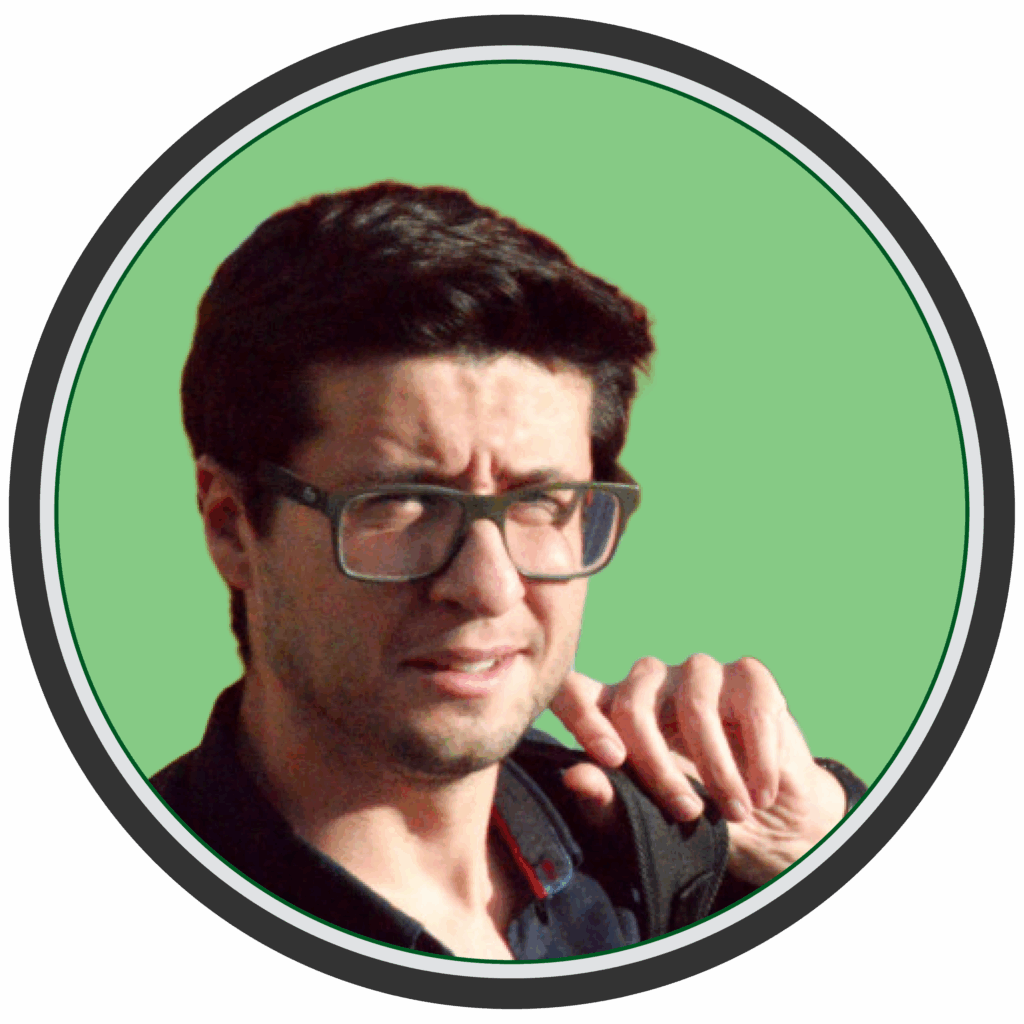Date
July 9, 2025
Venue
Talk I & III
Julieta Ferrão Street, Tower 10
@ Lisbon
Venue
Talk II & IV
Oliveira Monteiro Street, 168
@ Porto
Timetable
6:30pm - 8:30pm



July 9, 2025
Julieta Ferrão Street, Tower 10
@ Lisbon
Oliveira Monteiro Street, 168
@ Porto
6:30pm - 8:30pm
July 9, 2025
Julieta Ferrão Street, Tower 10
@ Lisbon
Oliveira Monteiro Street, 168
@ Porto
6:30pm - 8:30pm
July 9, 2025
Julieta Ferrão Street, Tower 10
@ Lisbon
Oliveira Monteiro Street, 168
@ Porto
6:30pm - 8:30pm
The sessions taking place in Lisbon will be broadcast remotely to all participants present at the facilities in Porto, and vice versa.
The sessions taking place in Lisbon will be broadcast remotely to all the
participants present at the facilities in Porto, and vice versa.
The sessions taking place in Lisbon will be broadcast remotely to all the
participants present at the facilities in Porto, and vice versa.
With over 24 years of experience in Information Systems, he began his career as a programmer, evolving over the years to roles related to software quality and testing, including team leadership and defining quality assurance strategies. This journey has provided him with a comprehensive view of technology and quality, combining technical knowledge with practical experience in developing reliable solutions and leading multidisciplinary teams focused on software excellence.
He currently holds the position of Head of QA at Hiscox, a multinational insurance company, where he is responsible for ensuring excellence in software processes and products. In addition, he serves as Director of PSTQB – Portuguese Software Testing Qualifications Board, contributing to the promotion of best practices and the development of testing and quality in Portugal. He is also an ISTQB-accredited trainer, with over 10 years of experience in training professionals in topics related to software testing and quality.

With over 24 years of experience in Information Systems, he began his career as a programmer, evolving over the years to roles related to software quality and testing, including team leadership and defining quality assurance strategies. This journey has provided him with a comprehensive view of technology and quality, combining technical knowledge with practical experience in developing reliable solutions and leading multidisciplinary teams focused on software excellence.
He currently holds the position of Head of QA at Hiscox, a multinational insurance company, where he is responsible for ensuring excellence in software processes and products. In addition, he serves as Director of PSTQB – Portuguese Software Testing Qualifications Board, contributing to the promotion of best practices and the development of testing and quality in Portugal. He is also an ISTQB-accredited trainer, with over 10 years of experience in training professionals in topics related to software testing and quality.

With over 24 years of experience in Information Systems, he began his career as a programmer, evolving over the years to roles related to software quality and testing, including team leadership and defining quality assurance strategies. This journey has provided him with a comprehensive view of technology and quality, combining technical knowledge with practical experience in developing reliable solutions and leading multidisciplinary teams focused on software excellence.
He currently holds the position of Head of QA at Hiscox, a multinational insurance company, where he is responsible for ensuring excellence in software processes and products. In addition, he serves as Director of PSTQB – Portuguese Software Testing Qualifications Board, contributing to the promotion of best practices and the development of testing and quality in Portugal. He is also an ISTQB-accredited trainer, with over 10 years of experience in training professionals in topics related to software testing and quality.
This talk aims to introduce participants to the specifics of testing mobile applications and related best practices, accelerating learning and increasing efficiency in app validation. apps.
Key-points:
This talk aims to introduce participants to the specifics of testing mobile applications and related best practices, accelerating learning and increasing efficiency in app validation. apps.
Key-points:
This talk aims to introduce participants to the specifics of testing mobile applications and related best practices, accelerating learning and increasing efficiency in app validation. apps.
Key-points:
Since starting his career as a Quality Assurance Engineer, Aires Oliveira has focused exclusively on mobile application projects, with a strong emphasis on test automation. Throughout his career, he has worked with companies such as CHANEL, ASOS, Tui, and Volkswagen, gaining solid experience in both Android and iOS. He is proficient in automation tools such as Espresso, XCUITest, Appium, and Maestro, applying them to ensure quality and efficiency in mobile development.
At Mindera, in addition to his activities as Mobile QA Engineer, he leads initiatives to explore new tools and best practices in QA for the mobile universe. Since 2023, he has also been sharing his knowledge as a trainer at Rumos, in the areas of testing (manual and automation) and mobile development.

Since starting his career as a Quality Assurance Engineer, Aires Oliveira has focused exclusively on mobile application projects, with a strong emphasis on test automation. Throughout his career, he has worked with companies such as CHANEL, ASOS, Tui, and Volkswagen, gaining solid experience in both Android and iOS. He is proficient in automation tools such as Espresso, XCUITest, Appium, and Maestro, applying them to ensure quality and efficiency in mobile development.
At Mindera, in addition to his activities as Mobile QA Engineer, he leads initiatives to explore new tools and best practices in QA for the mobile universe. Since 2023, he has also been sharing his knowledge as a trainer at Rumos, in the areas of testing (manual and automation) and mobile development.

Since starting his career as a Quality Assurance Engineer, Aires Oliveira has focused exclusively on mobile application projects, with a strong emphasis on test automation. Throughout his career, he has worked with companies such as CHANEL, ASOS, Tui, and Volkswagen, gaining solid experience in both Android and iOS. He is proficient in automation tools such as Espresso, XCUITest, Appium, and Maestro, applying them to ensure quality and efficiency in mobile development.
At Mindera, in addition to his activities as Mobile QA Engineer, he leads initiatives to explore new tools and best practices in QA for the mobile universe. Since 2023, he has also been sharing his knowledge as a trainer at Rumos, in the areas of testing (manual and automation) and mobile development.
The lecture addresses the critical role of Quality Assurance (QA) in large organizations, structured in four key moments. The first moment highlights the importance of testers as the last line of defense against defective products in large companies. The second identifies the typical challenges faced by QA in these contexts, such as bureaucratic obstacles, and the third proposes some fundamental strategies for achieving success.
In the final part, the lecture focuses on leadership and career growth in the field of QA. It emphasizes the need for personal adaptation in the face of organizational changes, as well as the development of essential skills for professional advancement. Continuous training is highlighted as an essential pillar for long-term success in the field of Quality Assurance.
The lecture addresses the critical role of Quality Assurance (QA) in large organizations, structured in four key moments. The first moment highlights the importance of testers as the last line of defense against defective products in large companies. The second identifies the typical challenges faced by QA in these contexts, such as bureaucratic obstacles, and the third proposes some fundamental strategies for achieving success.
In the final part, the lecture focuses on leadership and career growth in the field of QA. It emphasizes the need for personal adaptation in the face of organizational changes, as well as the development of essential skills for professional advancement. Continuous training is highlighted as an essential pillar for long-term success in the field of Quality Assurance.
The lecture addresses the critical role of Quality Assurance (QA) in large organizations, structured in four key moments. The first moment highlights the importance of testers as the last line of defense against defective products in large companies. The second identifies the typical challenges faced by QA in these contexts, such as bureaucratic obstacles, and the third proposes some fundamental strategies for achieving success.
In the final part, the lecture focuses on leadership and career growth in the field of QA. It emphasizes the need for personal adaptation in the face of organizational changes, as well as the development of essential skills for professional advancement. Continuous training is highlighted as an essential pillar for long-term success in the field of Quality Assurance.
Passionate enthusiast of software testing and Robot Framework, with a career spanning almost 18 years.
He is an experienced manager with C-level exposure and currently serves as Senior QA Manager at a large organization (with over 6,000 employees).
He specializes in budgeting QA projects and designing automation solutions.
He holds a master's degree in Software Energy Consumption Testing and is currently pursuing a PhD in Web Science and Technology (software engineering). He holds ISTQB Foundation, Agile, and Advanced Level certifications and actively participates in the testing community as a speaker at international conferences.

Passionate enthusiast of software testing and Robot Framework, with a career spanning almost 18 years.
He is an experienced manager with C-level exposure and currently serves as Senior QA Manager at a large organization (with over 6,000 employees).
He specializes in budgeting QA projects and designing automation solutions.
He holds a master's degree in Software Energy Consumption Testing and is currently pursuing a PhD in Web Science and Technology (software engineering). He holds ISTQB Foundation, Agile, and Advanced Level certifications and actively participates in the testing community as a speaker at international conferences.

Passionate enthusiast of software testing and Robot Framework, with a career spanning almost 18 years.
He is an experienced manager with C-level exposure and currently serves as Senior QA Manager at a large organization (with over 6,000 employees).
He specializes in budgeting QA projects and designing automation solutions.
He holds a master's degree in Software Energy Consumption Testing and is currently pursuing a PhD in Web Science and Technology (software engineering). He holds ISTQB Foundation, Agile, and Advanced Level certifications and actively participates in the testing community as a speaker at international conferences.
Bruno is a passionate QA Engineer and trainer with over 10 years of experience in quality assurance. He has helped teams in Brazil and Europe build robust automation frameworks, improve testing strategies, and foster a culture of quality.
He currently works as a QA Engineer at LetsGetChecked, is a trainer at Rumos, and also leads his own quality promotion project, Mestre QA.

Bruno is a passionate QA Engineer and trainer with over 10 years of experience in quality assurance. He has helped teams in Brazil and Europe build robust automation frameworks, improve testing strategies, and foster a culture of quality.
He currently works as a QA Engineer at LetsGetChecked, is a trainer at Rumos, and also leads his own quality promotion project, Mestre QA.

Bruno is a passionate QA Engineer and trainer with over 10 years of experience in quality assurance. He has helped teams in Brazil and Europe build robust automation frameworks, improve testing strategies, and foster a culture of quality.
He currently works as a QA Engineer at LetsGetChecked, is a trainer at Rumos, and also leads his own quality promotion project, Mestre QA.
2026 | PORTUGUESE SOFTWARE TESTING ASSOCIATION
Privacy Policy | Terms and Conditions